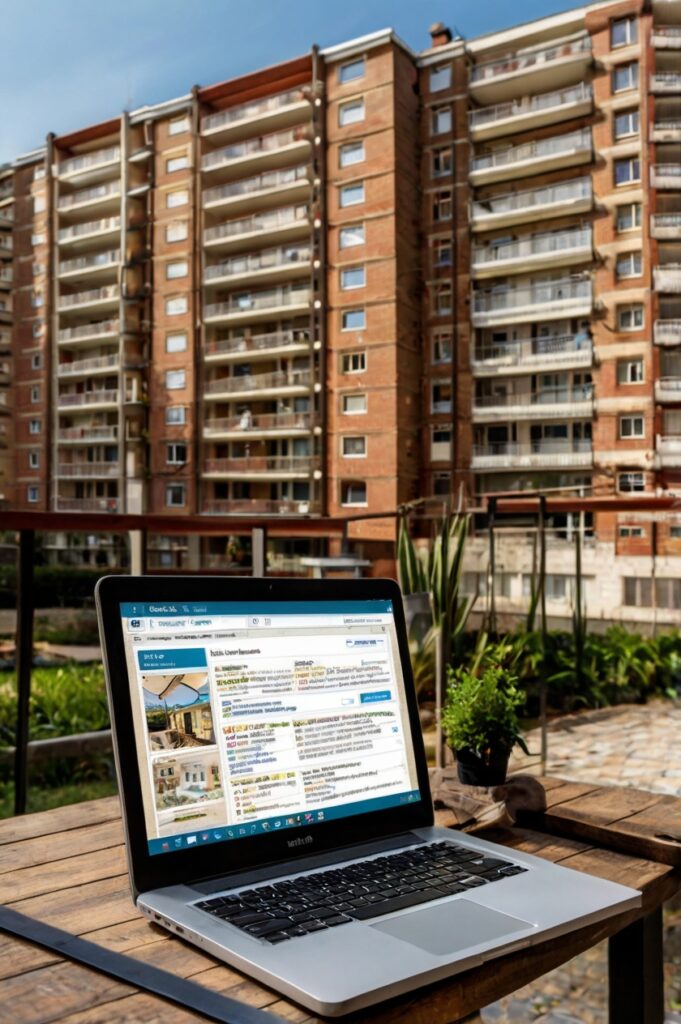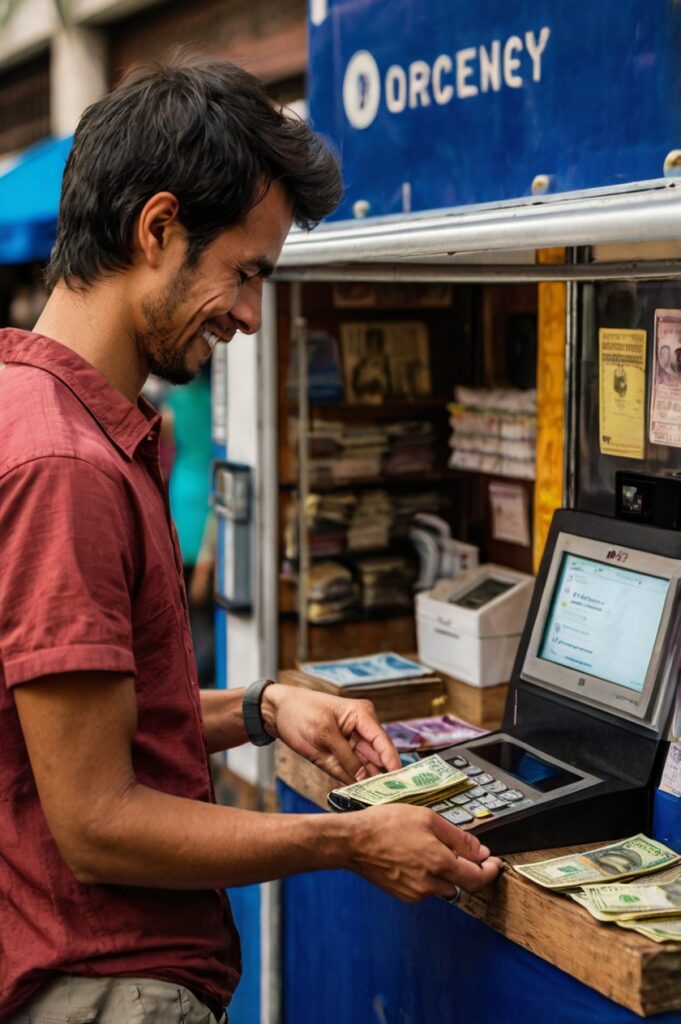18 Common Digital Nomad Scams and How to Avoid Them
Hey fellow nomads! If you’ve been in the game for a while, you know that while traveling the world is an epic adventure, it comes with its own set of challenges. One of those challenges? Scammers. Yup, they’re out there, and they’re getting more creative by the day. From fake rental listings to online job traps, it’s easy to fall for a scam when you’re constantly on the move. But don’t worry – I’ve got your back. After 15 years of traveling solo, I’ve learned how to spot these red flags from a mile away. Let’s walk through 18 common digital nomad scams and how you can avoid falling for them!
1. Fake Accommodation Listings

We’ve all been there, scrolling through listings on sites like Airbnb or Booking.com, only to find out that the place doesn’t exist, or it’s nothing like the photos. It’s one of the most common scams digital nomads face.
How to avoid it: Always check the reviews (if there are any) and look for red flags like vague descriptions or low-quality photos. Also, if a deal seems too good to be true, it probably is. And trust your instincts!
2. Unrealistic Job Offers

Ah, the allure of that perfect online job: great pay, minimal work, and all you need is a laptop and Wi-Fi. Sounds too good to be true, right? That’s because it usually is.
How to avoid it: Do your research! Look for reviews of the company or individual offering the job. If the job listing promises huge amounts of money for little work, it’s likely a scam. Legit jobs don’t require you to pay upfront.
3. Fake Wi-Fi Hotspots

When you’re a digital nomad, Wi-Fi is your lifeline. Unfortunately, scammers often set up fake hotspots to steal your data.
How to avoid it: Avoid connecting to networks with generic names like “FreeWiFi” or “PublicHotspot.” If you have to use public Wi-Fi, invest in a VPN (virtual private network) to protect your information.
4. The ‘We’re Hiring’ Scam

A lot of nomads fall for the ‘we’re hiring’ scams on job boards. The twist? The employer asks for an upfront fee for ‘training’ or ‘materials’ before you even start.
How to avoid it: Never pay any fees to get hired. Legit employers cover your training and materials, not the other way around.
5. Currency Exchange Schemes

Exchanging money in foreign countries can sometimes lead to being scammed, especially when currency exchange services offer ‘too good’ rates.
How to avoid it: Always exchange money at reputable places (banks, official exchange offices). Compare rates beforehand to ensure you’re getting a fair deal.
6. Fake Travel Insurance Offers
Travel insurance is a must for every nomad. But be careful, because scammers often offer ‘exclusive’ plans at super low prices, only to leave you with no coverage when you need it most.
How to avoid it: Stick to well-known insurance providers or get recommendations from fellow nomads. Don’t fall for super-cheap offers that sound too good to be true.
7. Phishing Emails
Phishing emails are a common tactic used by scammers to steal your personal information. They may look like they’re from legitimate sources, but the goal is to get you to click on links or attachments that steal your data.
How to avoid it: Don’t open emails from unfamiliar sources or click on suspicious links. Always verify with the company directly if you’re unsure.
8. Travel Visa Scams
Some websites claim to offer “fast-tracked” visas for a hefty fee. Spoiler: They’re usually just pocketing your money, leaving you stranded.
How to avoid it: Always go through official government websites for visa applications. If a third-party service is charging a lot of extra fees, be skeptical.
9. Airport Transfer Scams
You’ve just landed in a new country, and someone approaches you with an offer for a ‘private ride’ to your accommodation. They’re often overpriced or non-existent.
How to avoid it: Pre-arrange airport transfers through trusted services or use public transport when possible.
10. Fake Freelancer Platforms
Some freelance websites are fake and exist only to collect fees or personal information. They may look professional, but they offer little in return.
How to avoid it: Stick to well-established freelance platforms like Upwork or Fiverr. Research any platform you plan to use to ensure it’s legitimate.
11. Overpriced Co-Working Spaces
Co-working spaces are amazing, but some can be a complete rip-off, offering little in return for a hefty membership fee.
How to avoid it: Check reviews before booking. Don’t commit to long-term memberships without testing out the space.
12. Fake Travel Deals
We all love a good travel deal, but sometimes those ‘last-minute’ flight deals or hotel discounts are just a bait-and-switch.
How to avoid it: Use trusted booking sites and check multiple sources before booking any travel deals. If it’s too good to be true, it probably is.
13. Tour Scams
Local tours can be fantastic, but there are plenty of unscrupulous operators out there who promise an experience and deliver nothing.
How to avoid it: Always book tours through recommended agencies, read reviews, and verify the itinerary.
14. Luggage and Personal Item Scams
Luggage theft is a common scam, especially in airports and busy public areas.
How to avoid it: Keep your belongings close and use anti-theft backpacks or luggage. Always be aware of your surroundings
15. Fake Local Experiences
Locally offered experiences can be scams, where you pay a lot for little to no value in return.
How to avoid it: Book through well-known platforms or ask other travelers for recommendations.
16. Accommodation ‘Overbooking’ Scam
Scammers might trick you into thinking a place is fully booked, then offer you a ‘better’ option for a higher price.
How to avoid it: Always confirm your booking with the accommodation and get a direct contact number.
17. Scam Job Interviews
Fake recruiters may set up interviews that go nowhere or demand you to pay for unnecessary background checks.
How to avoid it: Never pay for job applications or background checks. Always research the company thoroughly
18. Charity Scams
Be careful when approached by people asking for donations – not every cause is as legitimate as it seems.
How to avoid it: Do research on the charity before donating. Avoid street donations unless you’re sure it’s legitimate.
As a digital nomad, staying vigilant and aware of scams can save you a lot of hassle (and money). No matter how experienced you are, these scams can sneak up on anyone. So, keep these tips in mind, trust your instincts, and don’t let a scam ruin your adventure. Now, go out there and keep exploring the world with your eyes wide open!







